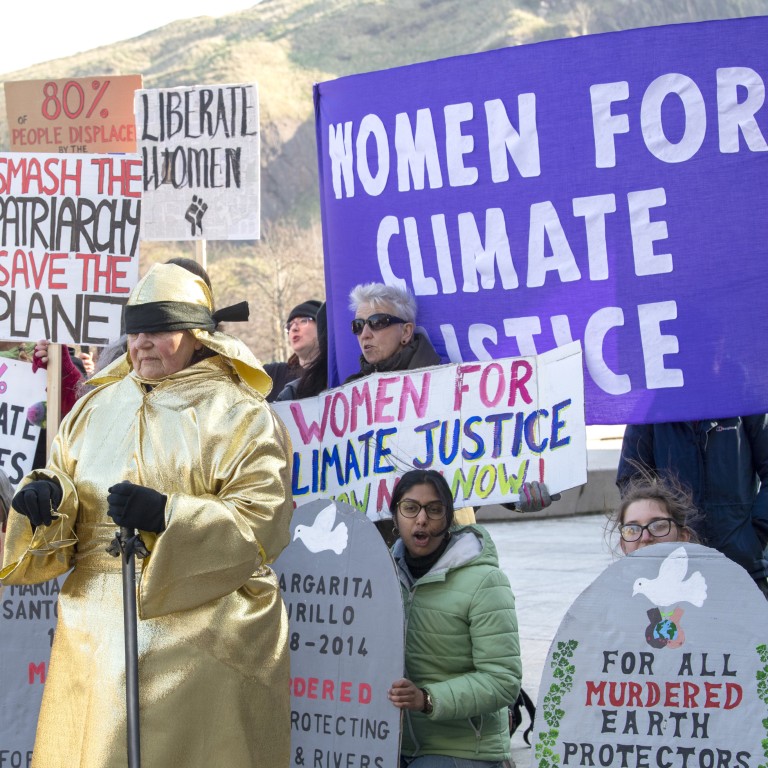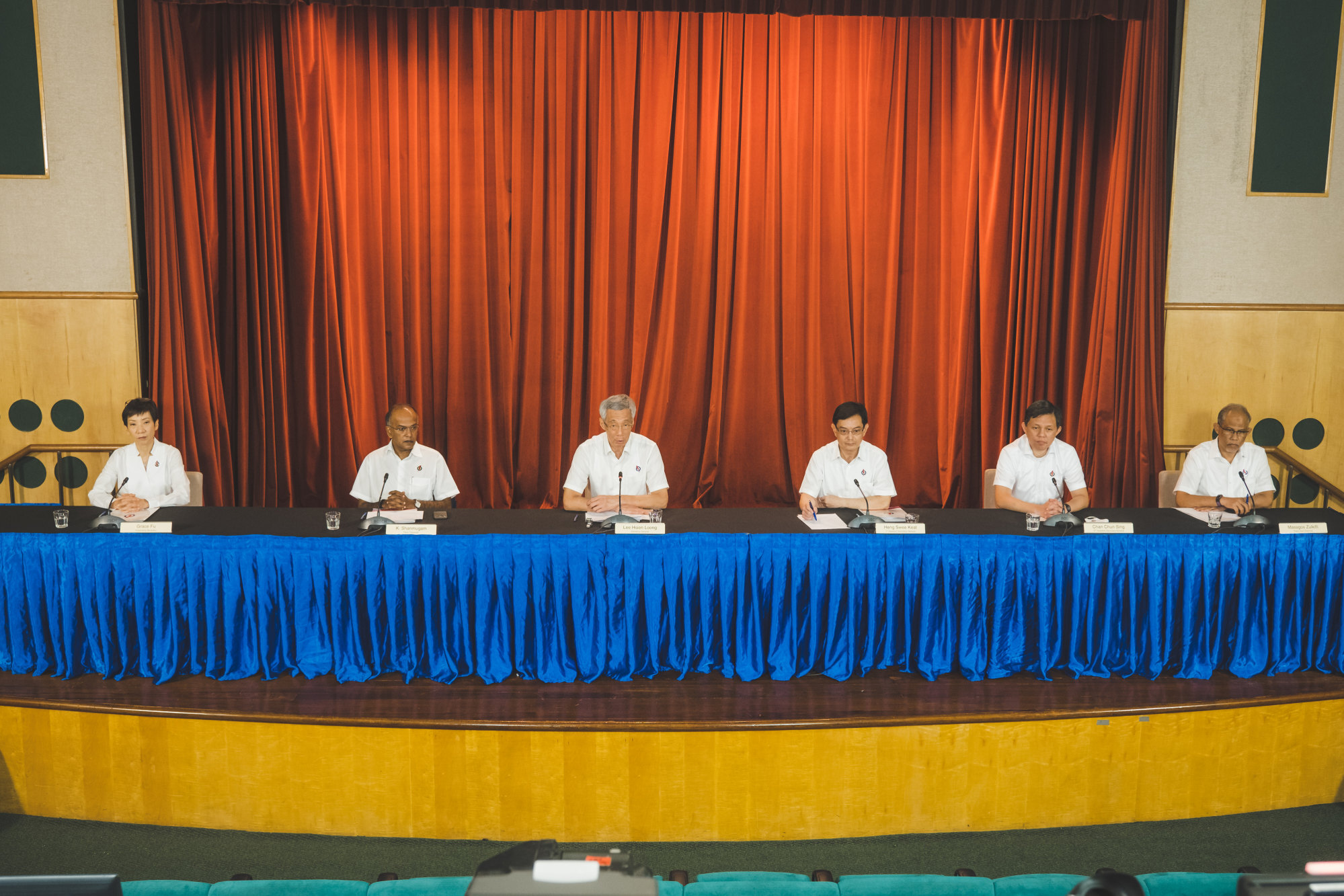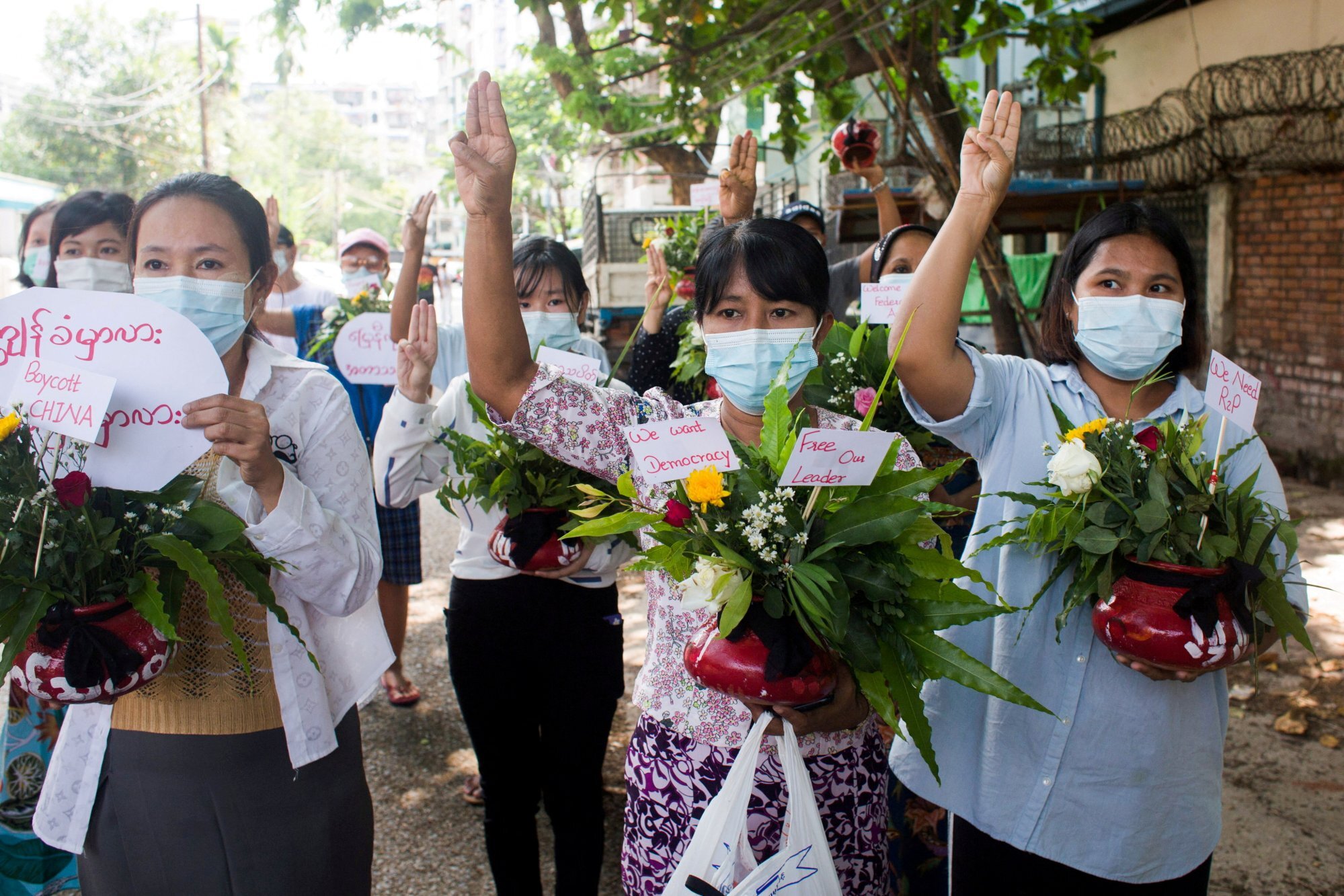
Climate action needs more female leaders in Asia, UN Women specialist says
- Sarah Knibbs, UN women’s deputy regional director, called on Asian countries to have more women engaged in leadership and policymaking focused on climate change
- She said that there are “concerning trends and backlash on women rights”, noting that advocating for women and girls’ rights in Afghanistan and Myanmar remain a priority
Asia’s women often work on the front line managing and mitigating climate change impacts, said Sarah Knibbs, UN Women’s deputy regional director and officer-in-charge for Asia and the Pacific. Despite their significant contribution, the region still has few female leaders in positions of power, including in the energy and environment ministries.
“We know that is something particularly complex in our region, sometimes other protracted crises are coming at the same time as the impact of climate change, which does disproportionately impact women and girls,” Knibbs said in an exclusive interview with This Week in Asia. “We know that their voices are not well represented at a leadership level”.

Only about 18 per cent of countries in the Asia-Pacific have a woman as environment minister. Meanwhile, UN statistics show that nearly 80 per cent of people displaced by climate change have been women.
“What we would like to see is much more acknowledgement of what women are doing first of all, and more representation of women in leadership and policymaking,” Knibbs said.
How climate action and gender equality are linked in the pursuit of justice
“Since women make up more poor people in the world, since women are often responsible for more day to day work on agriculture and all kinds of jobs that depend on natural resources – women and girls do bear a disproportionate impact and burden.”
Women and girls have especially suffered when natural disasters and other crises have occurred, the UN specialist said, from varied factors such as a lack of health care services, increased gender-based violence, child marriage and the early removal of girls from school.
Climate and gender
UN Women is focused on identifying climate action strategies that incorporate a gender lens in their design and implementation, Knibbs said, which involves using data that is gender-disaggregated – or collected and analysed separately on men and women – to fill in the gaps and inform policies that are inclusive.
“Ministries of environment and energy, these kinds of sectors, are in the lead, and we tend to see that women are unrepresented in those kinds of sectors,” Knibbs said.

Research has shown that involving women in decision-making comes with a number of advantages.
“Different perspectives are brought to bear, and we know that we are more likely to have decisions that positively impact a broader group of people in society,” Knibbs said.
An academic paper published in 2019 showed that countries with greater female representation in their national parliaments had more stringent climate change policies, resulting in lower carbon dioxide emissions.
Chinese firms urged to exit from Myanmar mines amid escalating violence
“This issue of care work is something we need to increasingly focus on. One of the things that the UN Women has been looking at is working with entrepreneurs who have different models for how to address the burden of care and how to provide access to affordable child care options that can enable women to engage with the workforce,” she said.
At the same time, the pandemic “reminded us of the urgency of addressing violence against women and girls”, Knibbs said, which requires not only increased services, but also prevention efforts.
Another problem that has been highlighted by the crisis is the issue of online violence against women and girls, and the need to find ways to counter it, she said.

“As all over the world, we see [in our region] some concerning trends of backlash on women’s rights. At the same time, we see a young generation that is raising a lot of issues and that is speaking out. So I think it’s quite paradoxical,” Knibbs said.
“For us in this region, Afghanistan has been an enormous concern in the last 12 months [when it comes] to the situation of women and girls there. Of course, this is not the only crisis situation we have in the Asia-Pacific because we also have the continuing situation in Myanmar, which continues to disproportionately impact women and girls.”
Afghan women and girls still trapped despite promises
“It’s too early for us to say. It’s very much to be expected that the situation in Ukraine is the main focus of attention at the moment. We are doing our best to support our colleagues in Eastern Europe and Central Asia,” she said. “We will have to see how this will play out, but we need to continue to advocate for the situation of women and girls in Afghanistan and in Myanmar – whatever else is going on in the world, they continue to face significant issues.”

